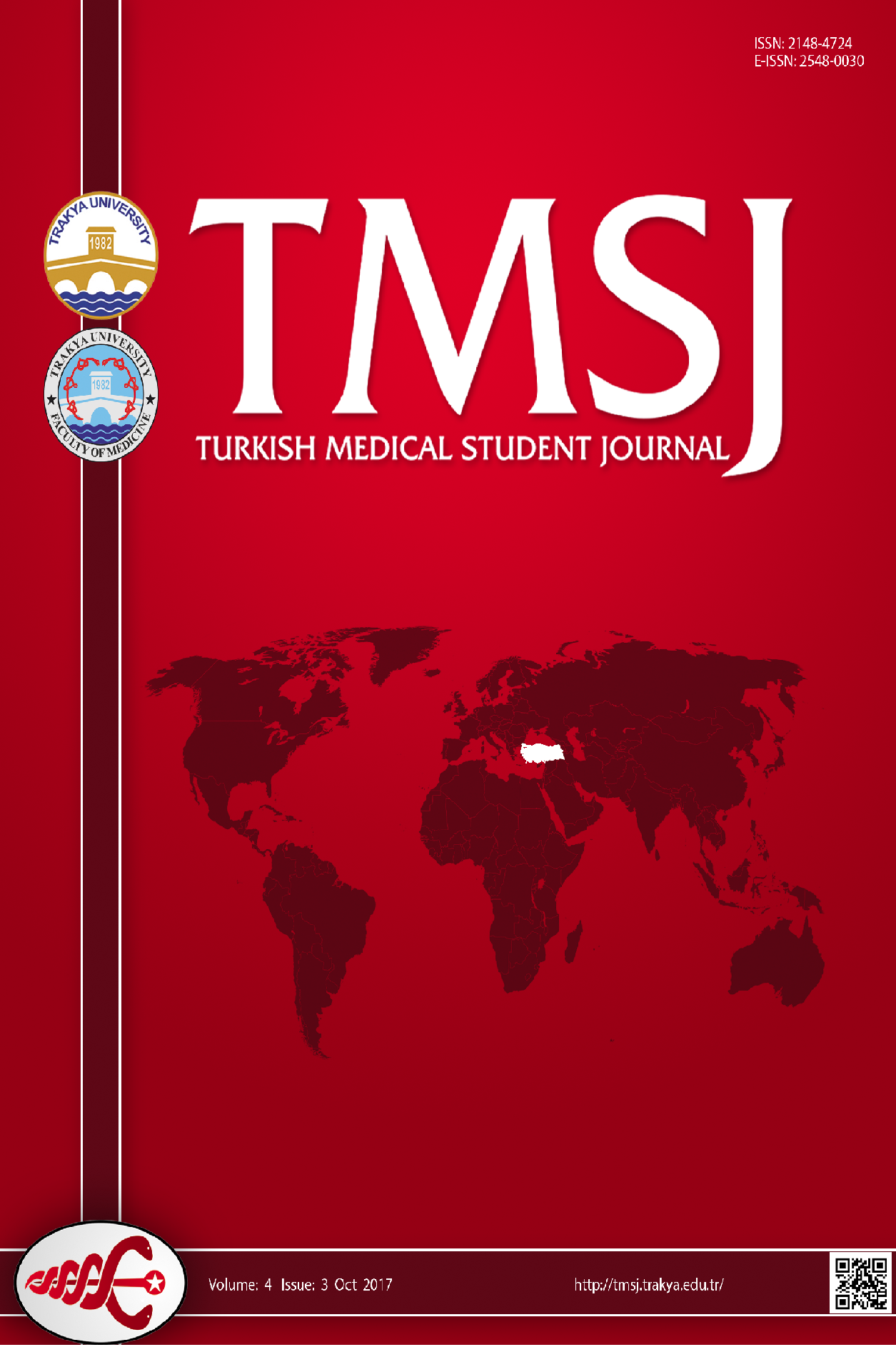
Turkish Medical Student Journal
Yazarlar: Begüm Söyleyici, Ece Şenyiğit, Nur Gülce İşkan, Fazlı Yanık
Konular:-
Anahtar Kelimeler:Port catheter,Patient satisfaction,Survey
Özet: Aims: Implantable venous port catheter is a widely used clinical tool with plenty of objectives such as parenteral nutrition, taking blood sample, management of medicines used in chemotherapy. The aim of this study is to evaluate patient satisfaction regarding implantable venous port catheter for chemotherapy treatment.Methods: The data of 19 patients operated from March 2017 to June 2017 were analyzed as a survey based assessment in Trakya University Hospital Department of Thoracic Surgery. Age, gender, satisfaction of having an implantable venous port catheter, the level of pain during implantation, being informed before the operation, fear of having a complication due to the implantable venous port catheter, being uncomfortable about having an implantable venous port catheter and not liking the appearance of implantable venous port catheter were included on the survey. The type and stage of cancer, comorbidity and the vein which is a port catheter was implanted in were recorded from patient charts. Results: The mean age of participants was 61.44 ± 7.493 years. Out of all 10 (52.6%) were male and 9 (47.4%) were female. The most utilized side during insertion was right jugular vein (94.4%). Rectum cancer was the most diagnosed cancer type with six patients. The most seen cancer stage was found to be stage-4-IV (66.7%). Comorbidity was detected in 15 patients (83.3%). 89.5% of patients had indicated that they were informed enough before the procedure. 57.9% of the patients responded to question of fear of complication as “yes”. According to these responses, 52.6% of the patients emphasized their discomfort as “little”.Conclusion: This survey-based assessment study points out that most of the cancer patients are contented for being implanted with an implantable venous port catheter. Having an implantable venous port catheter is safer and easier way for cancer patients. Moreover, it gives patients more freedom of movement